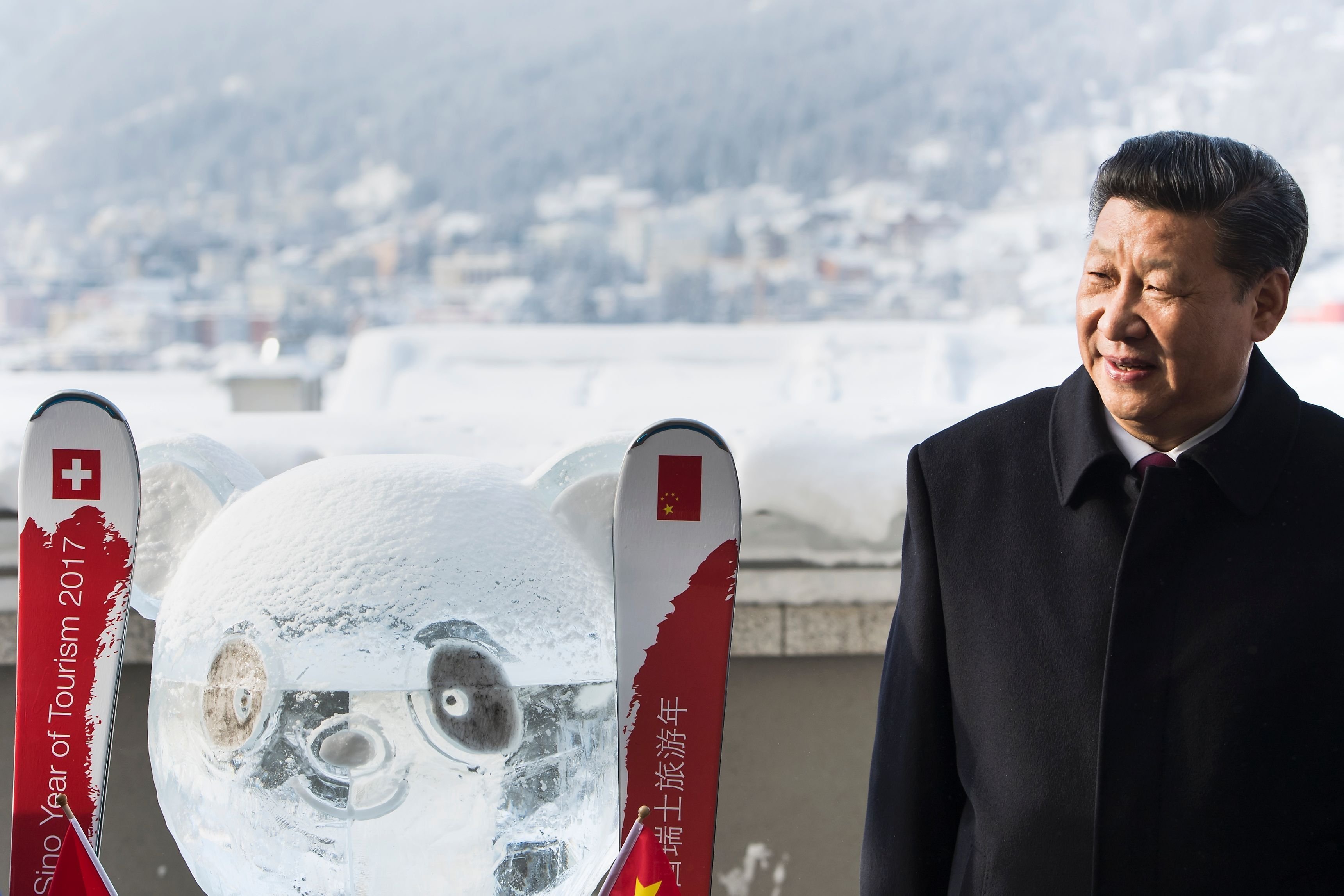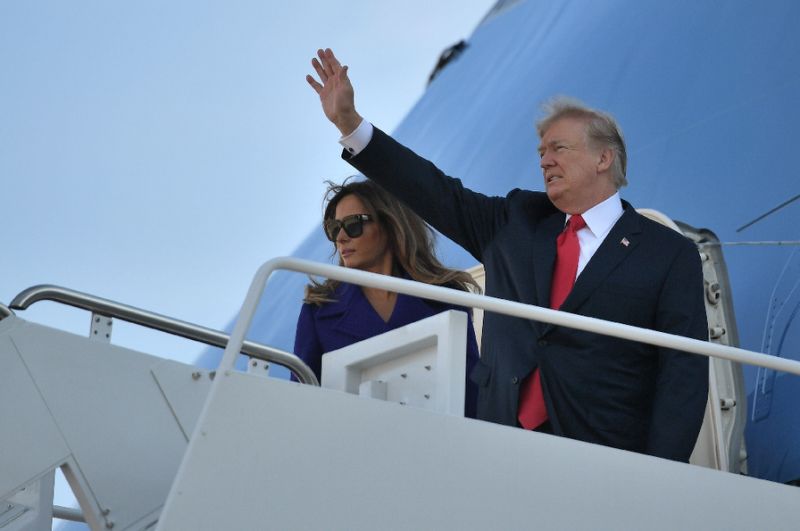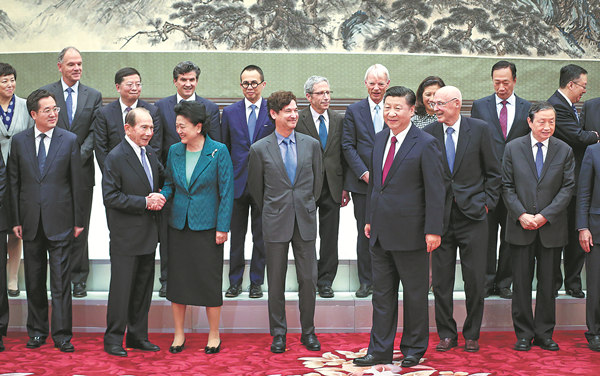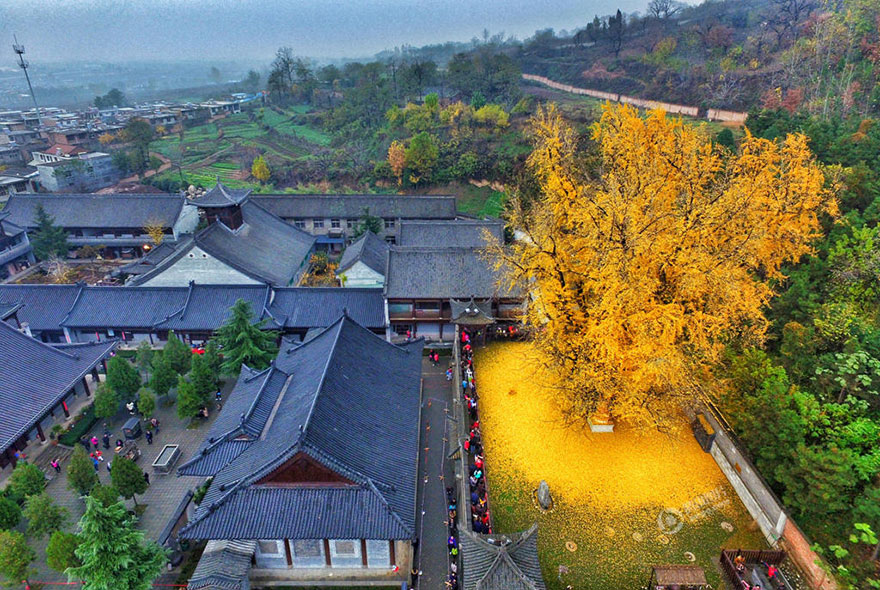
 Will China Display Hard or Soft Power in the Era of Xi?
Will China Display Hard or Soft Power in the Era of Xi?At China's 19th Party Congress, the rest of the world's eyes and ears were fixed on how president Xi Jinping described China's role in the global order and his foreign policy language. While different interpretations have been made since, there are no signs that China plans on backing down on any of its "core interests" or or perhaps on any other interests for that matter.
"A military force is built to fight," Xi said in his work report to the congress on Oct. 18. "Our military must regard combat readiness as the goal for all its work and focus on how to win when it is called upon." In his remarks he declared China's intention of transforming the People's Liberation Army into a "world-class military by the mid-21st century." This comes at a time when many are worried that Trump risks ceding the world stage to an emboldened China.
In a an opinion piece in the South China Morning Post titled "In Xi's new era, Chinese diplomacy will be a display of hard power", Deng Yuwen interpreted "The way the Party sees it, a hardline approach will not only protect the country's interests, but also meet the people's expectations of how a great power should behave." Deng concludes that "the Communist Party will no longer back down on many issues," and that the international community should be prepared to face a "strong" China. Others, such as China-US Focus contributor Mel Gurtov, think that rather squabbling over who's era it is, "these two great powers might better consider two fundamental issues: how to manage their differences so as to avoid confrontations, and how to cooperate in ways that truly benefit human security."
 Trump's First Asian Foray
Trump's First Asian ForayU.S. President Trump first Asian trip will bring him to five countries and two international summits. North Korea is very much going to be a focal point of the trip, and when Trump touches down in Beijing, many are wondering what sort of rhetoric he might use to persuade China to do more to reign in North Korea. H.R. McMaster, Trump's National Security Advisor quipped, "I don't think the president modulates his language -- have you noticed that?"
While China's state media is putting a hopeful and positive picture on Trump's visit, there still are Chinese and U.S. leaders concerned by the lack of cohesiveness among the Trump administration in their position on North Korea. Tao Wenzhao writes in China-US Focus, "The Trump administration has been sending mixed and incoherent messages on the issue. President Trump, Secretary Tillerson, and Defense Secretary Mattis expressed different positions on different occasions, indicating a lack of consensus within the cabinet." Other's are concerned that Trump and his aides have not aligned their interests or prepared well for the trip. In the Washington Post, Ryan Hass said, "past presidents had their Asia trips "preceded by six months of legwork — really hard, intensive engagement in the region by Cabinet and sub-Cabinet-level officials to tee up deliverables. ... That has not occurred in this instance."
Adding intrigue to the entire visit is the warming relations between President Xi and President Moon of South Korea. On Monday, both nations announced that they would "expeditiously bring exchange and cooperation in all areas back on a normal development track." It appeared that Xi Jinping decided that opposition to the U.S. deployment of the Thaad system was not successful in driving a wedge between the U.S. and South Korea. As CSIS's Michael Green commented, "It's going to undermine the Trump administration's effort to build solidarity among the U.S., Japan, and Korea to put pressure not only on North Korea, but on China to do more on North Korea."
The good news is that White House aides have asked for familiar food to be on hand for Trump's meals, so that he stay's to lower the risk of getting off-balance or making "gaffes or explosive remarks."
 Arms Wide Open to a Closed Internet
Arms Wide Open to a Closed InternetAs China Daily put it, the "first foreigners" that Xi Jinping met with to start his second term were members of the Advisory Board of Tsinghua University School of Economics and Management--which included Apple CEO Tim Cook and Facebook CEO Mark Zuckerberg. The message: China will stick to "opening up."
Facebook's Zuckerberg has been active in China in a bid to gain some of the 700 million internet users in China. The meeting comes at a particularly key time for Apple as it launched the iPhone X on Friday, amid lagging sales in China. Though many have argued that despite China's economic pragmatism, control of the Internet and popular discourse remains more important than ever. As The Wall Street Journal wrote, "As they pursue greater access to China's huge market, the foreign tech firms are going to have to accept a bigger role for the party. "
Just how much China's strict internet regulations will affect the willingness of ICT companies to continue foreign direct investment in China is still to be seen. Amy Zhao argues in China-US Focus that it is having a negative affect, "The American Chamber of Commerce in China said in its most recent report that its members faced "severe challenges competing in China's telecommunications and internet sectors due to investment restrictions, security controls and a range of protectionist measures." Ambassador Michael B. G. Froman from the office of the United States Trade Representative claimed that internet control in China is "hurting both internet sites themselves, and users who often depend on them for their business."
 This Week in Chinese HistoryAround 1,400 years ago in China this week, the Gingko tree of Gu Guanyin Buddhist Temple in the Zhongnan Mountains outside of Xi'an first started dropping its golden leaves. Their vibrant yellow colour giving rise to the tree's nickname of "Maidenhair." The tree is thought to have been planted by Tang Dynasty Emperor Li Shimin, and is located in the Zen Buddhist Temple, built during his reign which lasted between 629 and 649 C.E. In 2016, an online photo series drove its popularity so much that the temple attract an estimated 70,000 visitors in one day. This year, the monks created an app-based reservation system, limiting tickets to 7,200 visitors a day, to ensure the safety of the tree, and preserve the integrity of the temple.
This Week in Chinese HistoryAround 1,400 years ago in China this week, the Gingko tree of Gu Guanyin Buddhist Temple in the Zhongnan Mountains outside of Xi'an first started dropping its golden leaves. Their vibrant yellow colour giving rise to the tree's nickname of "Maidenhair." The tree is thought to have been planted by Tang Dynasty Emperor Li Shimin, and is located in the Zen Buddhist Temple, built during his reign which lasted between 629 and 649 C.E. In 2016, an online photo series drove its popularity so much that the temple attract an estimated 70,000 visitors in one day. This year, the monks created an app-based reservation system, limiting tickets to 7,200 visitors a day, to ensure the safety of the tree, and preserve the integrity of the temple.
Prepared by China-US Focus editorial teams in Hong Kong and New York, this weekly newsletter offers you snap shots of latest trends and developments emerging from China every week, while adding a dose of historical perspective.
- 2017-10-27 All Eyes on Xi
- 2017-10-20 The 19th Party Congress Begins
- 2017-10-13 Tech Titans
- 2017-10-06 China’s Super Golden Week
- 2017-09-29 All Quiet on North Korea’s Western Front?
- 2017-09-22 Back Together and Better than Ever: Renewed Sino-Russian Relations
- 2017-09-15 China positions itself to dominate the industries of the future
- 2017-09-08 Did North Korea just test a hydrogen bomb?
- 2017-09-01 Are Forced Technology Transfers Forcing the U.S. and China to Rethink How They Do Business?
- 2017-08-25 Bannon Out: What now for the China-US relationship?
- 2017-08-18 Trump Launches “Investigation on Whether to Investigate” China’s IP Laws
- 2017-08-11 Threats of "Fire and Fury" on the Korean Peninsula
- 2017-08-04 Trump Administration Plans Trade Actions Against China
- 2017-07-28 Xi to Dominate the 19th CPC Congress
- 2017-07-21 A Steely Comprehensive Economic Dialogue
- 2017-07-14 South China Sea Arbitral Award after One Year
- 2017-07-07 Now is the Trump Honeymoon with China Over?
- 2017-06-30 China Passes New Intelligence Law
- 2017-06-23 The End of China’s Honeymoon with Trump & Diplomatic and Security Dialogue
- 2017-06-16 Climate Change and Reliable Data Dealt Blows
